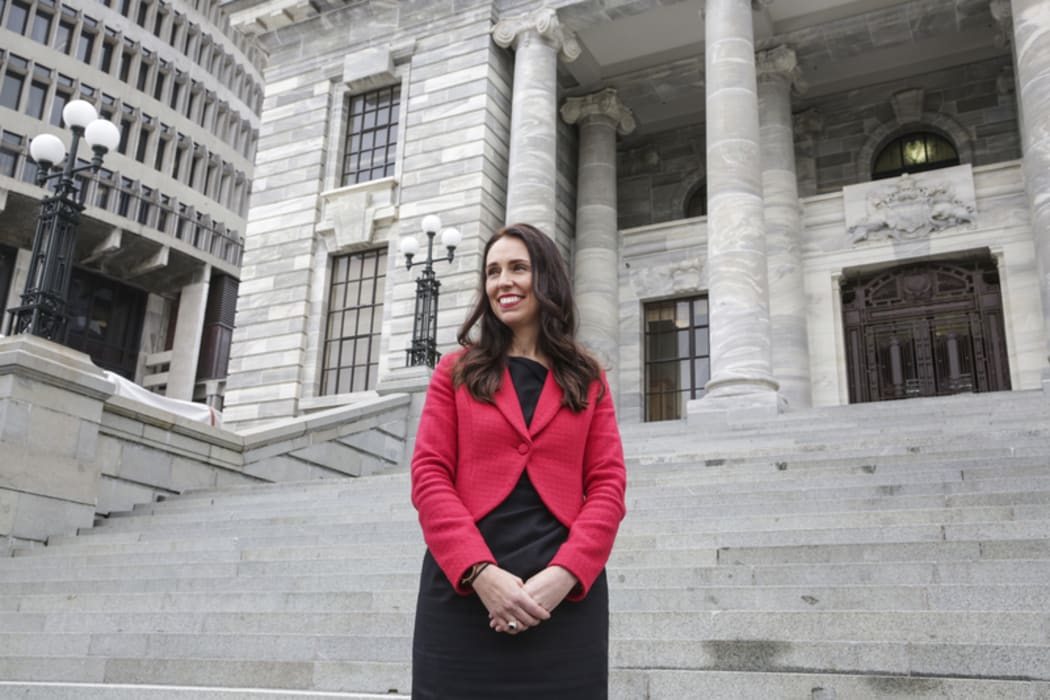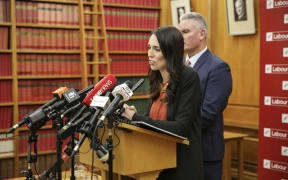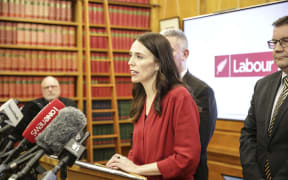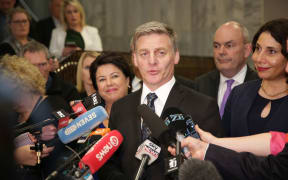Power Play - New Zealand has a new Prime Minister and a new government but how will New Zealanders be affected by the policy this new administration will roll out over the next term?

NC Photo: RNZ / Rebekah Parsons-King
Yesterday evening New Zealand First leader Winston Peters announced the party had chosen to enter into a coalition with Labour Party, with the Green Party providing confidence and supply.
While the details of the policy deals struck between Labour and New Zealand First remain confidential for now, its "First 100 Days" list provides a useful guide for what this government will prioritise.
Incoming Prime Minister Jacinda Ardern has said there would be "one addition, one subtraction" to this list, but would not be more specific.
RNZ's political editor Jane Patterson breaks down the likely policies coming down the pike.
Foreign ownership
The government will legislate to ban foreign buyers from purchasing existing residential houses.
The three parties have similar policies covering the sale of houses and land to anyone not a New Zealand citizen or permanent resident.
This also feeds directly in the housing debate where Labour has long accused National of allowing overseas speculators to push up house prices.
It may go further - during the negotiations the New Zealand First leader Winston Peters made it clear "foreign ownership" would absolutely be a focus of any government he was part of; his party's policy extends to banning the sale of farmland to foreigners and other strategic assets.
In her first address as Prime Minister designate, Ms Ardern said the party had a policy to take "much more proactive efforts to curb foreign ownership" of "significant infrastructure", a position that has not changed.
Mr Peters was asked what the foreign ownership policy would be. "What we campaigned on", he replied.
Immigration
The Greens are an outlier when it comes to how New Zealand should approach immigration and is the only party in this governing arrangement that does not support a significant reduction.
However, indications are Labour and New Zealand First have agreed on a programme to cut the number of unskilled migrants and student visas.
Ms Ardern has said she will stick with Labour's policy to reduce net immigration by 20,000 to 30,000 a year.
Housing
Kiwibuild is a policy Ms Ardern has confirmed - a major government programme aimed at building 100,000 affordable houses in 10 years.
"We all agree there was a housing crisis, we all agreed there was a role for the state to play and we all agreed we need to build that scale of houses.
"So, yes, that it what we remain committed to", she said.
Mr Peters said the plan, as established in the negotiations, was to start to build 10,000 affordable homes per year to help New Zealanders get on the "rung" of the housing ladder.
Labour's first-100-days list also included plans to better insulate rental houses through legislated obligations on landlords.
Water tax
Won't be happening. A bottled water levy, however, is still very much on the table.
Labour campaigned on taxing farmers and anyone else using irrigated water, money that would then be used to improve water quality in lakes and rivers, alongside a levy on bottled water.
There is broad support across the three parties for the bottled water levy, but sensing the unpopularity of the water tax in regional New Zealand Mr Peters vowed to oppose it.
Without specifically saying so, Ms Ardern said there had been a compromise.
"We remain committed to cleaning up New Zealand's rivers but I absolutely reflect now that Mr Peters did take a strong view on the mechanism that we were choosing to use," she said.
Health and education
There are big changes ahead for both of these sectors.
In its alternative Budget released before the election, Labour set aside $17 billion for extra social spending including on health and education, partly funded by scrapping National's planned tax cuts.
In education, some charter schools may survive as 'special character' schools, but the law allowing their creation and existence will be repealed.
National Standards in schools face a similar fate.
The early childhood sector is also expecting a higher funding rate for early childhood services where all teachers are qualified.
Tertiary students are also likely to get more financial support, either through a boost to the student allowance, or the student loan scheme.
The health sector will expect some action on the financial pressures on District Health Boards, especially given the strong campaign run by the Labour MP likely to pick up the health portfolio, David Clark.
RNZ Health Correspondent Karen Brown says usual practice would be for all of the DHB chairpeople to resign and for the government to make new appointments.
Labour has also promised a Ministerial Inquiry to address New Zealand's mental health crisis.
Trans-Pacific Partnership
National had forged ahead with the new-look TPP trade deal after the withdrawal of the United States - the TPP 11. However, Labour, New Zealand First and the Greens have all expressed reservations about the provisions of the original TPP deal, which have largely been carried over.
The government now will seek to renegotiate the deal so New Zealand would not be prevented from banning house sales by foreigners - that would not be allowed under the current text.
Mr Peters said they also had "agreement" to look at the Investor Disputes clause.
He said there was a ready solution to concerns New Zealand First had in the trade deal New Zealand struck with Singapore.
Monetary policy
The clue to where the new government might be heading with monetary policy could be seen in an unsuccessful member's bill sponsored by Mr Peters, which would have required the Reserve Bank to take into account factors such as export growth, the value of the dollar, employment and price stability.
Mr Peters said New Zealand should adopt the Singapore model, but said he "didn't secure that".
Incoming Finance Minister Grant Robertson was not giving much away, saying Labour had its policy (adding full employment to the Reserve Bank's mandate), and there were still discussions to be had.
Māori seats
There will not be a referendum on abolishing the Māori seats, which New Zealand First campaigned on.
Ms Ardern made it clear early on that voters on the Māori roll gave Labour good support and she would not betray them by holding a referendum.
Mr Peters still argues MMP delivers Māori representation and the seats are not needed, but said he did not have a big enough mandate to push the policy any further with Labour.
What we know about the Greens' deal
Despite Ms Ardern's intention to reveal the contents of policy deals next week, the Greens emailed members with the details, which soon became public.
Most notably, the new government will hold a referendum on legalising marijuana for personal use.
Other policies include an increase in drug and alcohol treatment funding, addressing the gender pay gap in the public service and establishing an independent Climate Commission.
Other likely policy changes
An increase to the minimum wage, a resumption of contributions to the New Zealand Superannuation Fund, keeping the age of superannuation entitlement at 65, some kind of re-entry into Pike River, the establishment of a Tax Working Group, and greater investment into rail and regional development.







